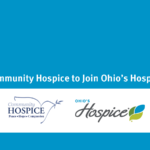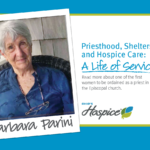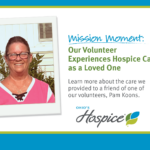
Ohio’s Hospice Joins in National Healthcare Decisions Week Effort
National Healthcare Decisions Week is being observed April 16-22 with a goal of reminding all people, regardless of age or current health status, of the importance of making their personal healthcare decisions known. Ohio’s Hospice is joining the effort to encourage members of our community to participate in important discussions about end-of-life care.
Every day at Ohio’s Hospice we help families come to terms with the unimaginable loss of a loved one. Family members are torn as they consider what is right, what is best, how to best honor the life of their loved one. There may be differences of opinion that can fracture families forever. This does not need to happen.
By sharing information with loved ones and your doctor about what you would want when you are facing life-limiting circumstances, you are not only helping yourself, you are also alleviating family members of guilt, stress, fear and potential long-lasting conflict. We talked with some our own staff who have had experiences they offered to share that open a window into the challenges families can face when someone they love faces their final days, weeks or months of life.
“My sisters and I have recently gone through all the legalities for our mom, who is in early stages of dementia. We each (and MOM) know what is happening, what we each will be responsible for, who Mom will live with when the time comes – SUCH a big burden lifted for each of us. My father-in-law did NOT make sure this was done and when he died, his entire estate was held for weeks. It was AWFUL during those dark days after his death.”
JoAnne
“I lost both parents to cancer. Father had paperwork in place and made it easy to follow his wishes. Mother did not have paperwork in place. We had several conversations with her about her wishes, but before she could complete paperwork, she coded. We had to go through the painful process of turning off life support.”
Beverly
“When my father was diagnosed with end-stage pancreatic cancer, my siblings, my mother and I had to make decisions about his care. It was less of a burden on us because we had talked with my parents long before Dad was ill so we knew his wishes. We also knew these were his true wishes and not the pain or medication talking. He was able to die on his terms, not ours. When my in-laws passed, it was unexpected. They did not have any plans in place. They never wanted to talk about it. It was very hard as the family all had their own ideas and it was very stressful.”
Susan
An American Journal of Public Health study finds that 60% of those 18 and older want their end-of-life wishes to be respected. But according to a National Institute of Health study only 26.3% of U.S. adults have completed an Advance Directive. Why not more? Most had thought about it but not completed the forms. The primary reasons offered were that they did not know about the forms, were concerned about cost or complexity.
In reality, it is simple, easy and free of cost to take the steps to assure your healthcare decisions are honored.
- Talk with your loved ones about your preferences for healthcare planning.
- Visit www.DecideToBeHeard.org to locate resources about the topic
- Forms can also be found here.
Show your love for your family by taking the necessary steps to establish your wishes during National Healthcare Decisions Week. They will be forever grateful to you for it.
Author Profile
Latest entries
 Media ReleaseJanuary 1, 2024Community Hospice to Join Ohio’s Hospice Strategic Partnership
Media ReleaseJanuary 1, 2024Community Hospice to Join Ohio’s Hospice Strategic Partnership #CelebratingLifesStoriesNovember 21, 2023Priesthood, Shelters and Hospice Care: A Life of Service for Barbara Parini
#CelebratingLifesStoriesNovember 21, 2023Priesthood, Shelters and Hospice Care: A Life of Service for Barbara Parini News and UpdatesJuly 28, 2023Ohio’s Hospice Volunteer Experiences Hospice Care as a Loved One
News and UpdatesJuly 28, 2023Ohio’s Hospice Volunteer Experiences Hospice Care as a Loved One News and UpdatesJuly 19, 2023The Not-for-Profit Difference
News and UpdatesJuly 19, 2023The Not-for-Profit Difference

